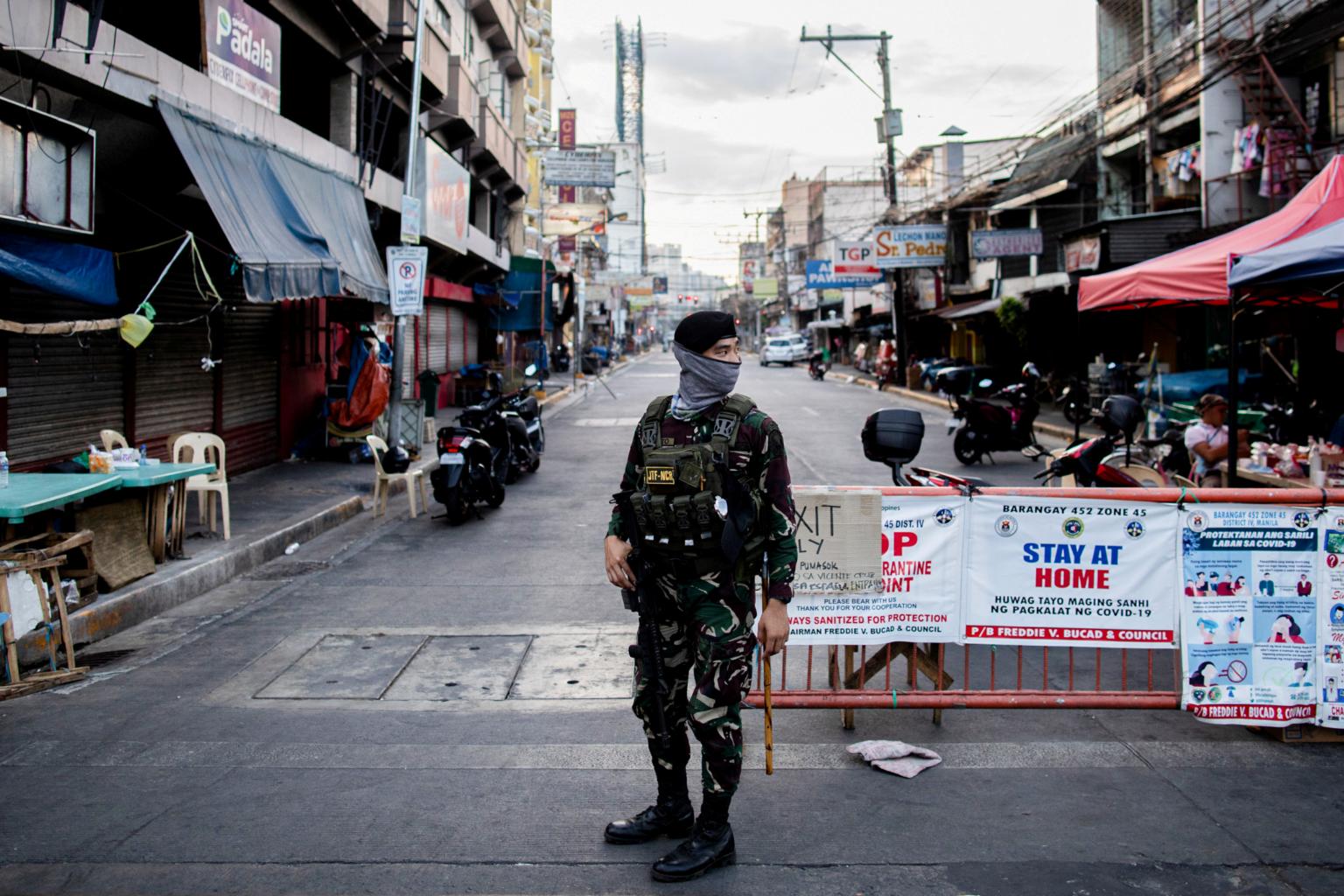Coronavirus: Sweeping, strict Manila lockdown ends on June 1, after three months
Sign up now: Get insights on Asia's fast-moving developments

Metro Manila has been effectively shut off from the rest of the Philippines and the world since March 16, 2020.
PHOTO: REUTERS
MANILA - President Rodrigo Duterte announced on Thursday (May 28) that he is lifting one of the strictest and longest lockdowns enforced in South-east Asia, as the Philippines pivots to rebuilding an economy devastated by the coronavirus pandemic.
"Let us move to the so-called new normal. Let's see what develops ahead," Mr Duterte said at a meeting of his ministers.
He said this as health officials reported earlier in the day the largest number of new cases reported in a single day since the virus was first detected in the country, and experts warned easing the lockdown is premature as it has not led to a "discernible" drop in infections.
The Health Ministry said in a bulletin 539 new infections and 17 more deaths were recorded, bringing total infections to 15,588. Deaths have reached 921. More than half of the new cases were in Metro Manila.
Mr Duterte reminded the public that "the entire nation is still under quarantine". Some curbs would remain in place to prevent a second wave of infections, he said.
A task force overseeing efforts to slow the spread of the virus recommended that Mr Duterte downgrade sweeping restrictions in place across Metro Manila since March 16 to a "general community quarantine" starting June 1, Interior Secretary Eduardo Ano said.
"But high-risk districts that we consider as 'critical zones' will remain under total lockdown," he said.
Districts inside Metro Manila that continue to report two or more cases per week will remain under strict shelter-at-home restrictions, he said.
Curbs everywhere else in Metro Manila and in the rest of the Philippines will be eased.
Metro Manila has been effectively shut off from the rest of the Philippines and the world since March 16.
Starting June 1, those living in Metro Manila may leave their homes without a "quarantine pass" to buy essential goods and services.
More companies will be allowed to reopen. Malls can also reopen more stores. But restaurants are still limited to takeaways and deliveries, and salons, spas, cinemas, bars and clubs will remain closed.
Commuters may again board buses, trains, taxis and motorised rickshaws, and travel to places outside Metro Manila. But checkpoints will still be in place to make sure only those going to work or on supply runs and buying essential items are out on the road.
Essential travel to places outside Metro Manila will be allowed, although airports will remain closed to both domestic and international flights.
The goal with the transition is to revive an economy that has been on standstill because of the lockdown, said Mr Ano.
A city mayor in Metro Manila said the pandemic has had a "devastating effect", especially on workers.
Some five million Filipinos are likely to lose their jobs by year end, and a crippling recession may linger till next year, labour officials and economists have warned.
Philippine Airlines is nearing bankruptcy.
Fast-food giant Jollibee on Thursday reported losses of up to 1.8 billion pesos (S$50 million) in the first three months of the year, and warned that the bleeding would continue throughout the year.
Philippine Chamber of Commerce and Industry chief Benedicto Yujuico said the situation is even more dire for over a million micro, small and medium-sized businesses. Most have just two to three months' worth of cash left, he said.
Mr Duterte's spokesman Harry Roque told reporters: "We have to balance (our health concerns) with the economy. If we survive Covid-19 but we don't have a job, it's all the same in the end."
The latest health reports show Metro Manila is ready to ease lockdown restrictions, he said.
"But that really depends on the cooperation of everyone," he said.
He said the "doubling time", or the rate at which infection spreads, has slowed to six days from 2.5 days in March, and hospitals are no longer overwhelmed with an avalanche of patients with Covid-19, the disease the virus causes.
A group of experts from the state-run University of the Philippines warned on Tuesday that easing the lockdown around Metro Manila might be "premature", saying there had not been a "discernible" drop in the number of confirmed cases during the lockdown.
But Mr Roque said even if curbs were relaxed, Metro Manila "remains under community quarantine".
"That means there will still be checkpoints and curfews. Our existing responses will not just vanish," he said.


